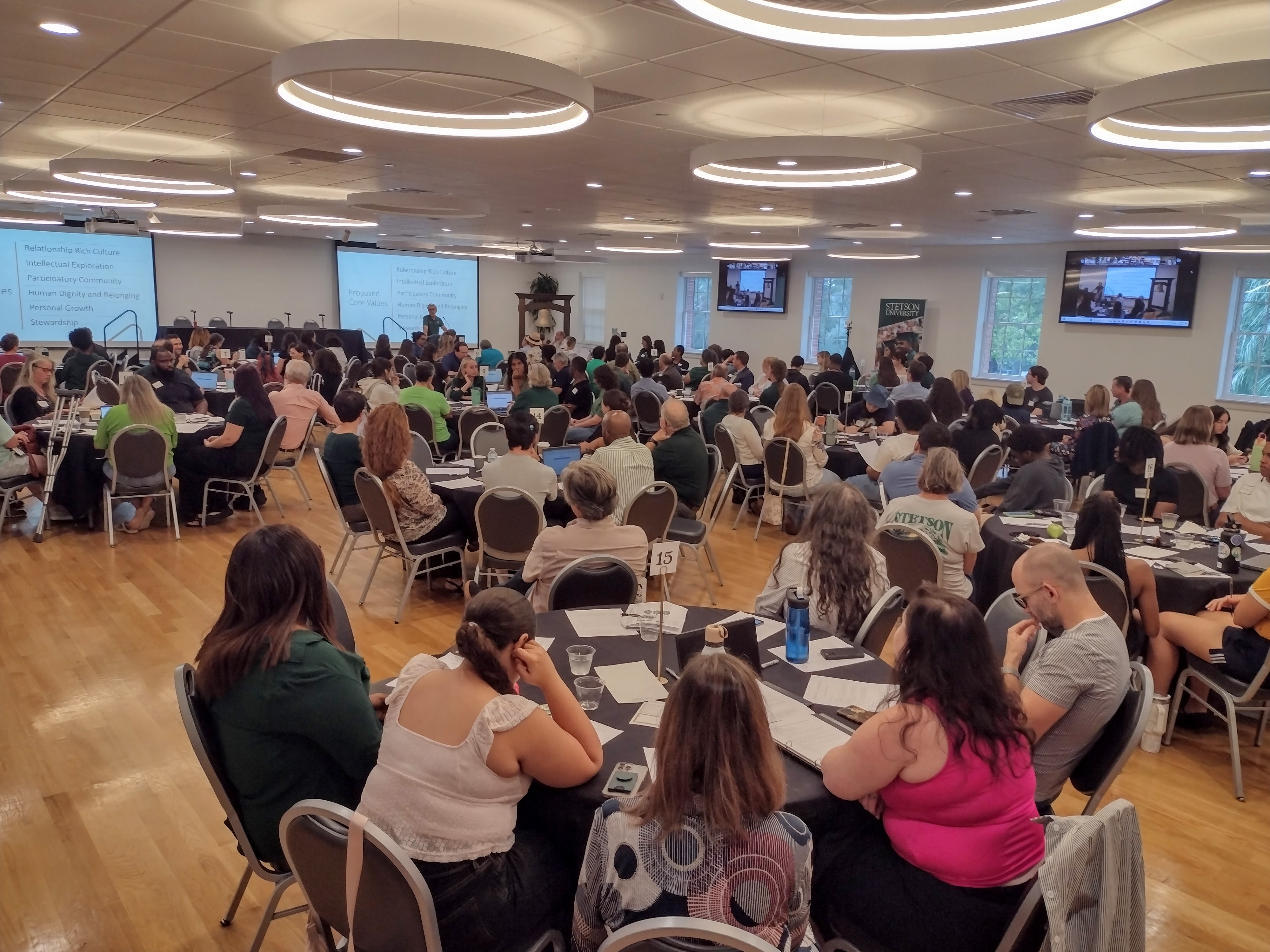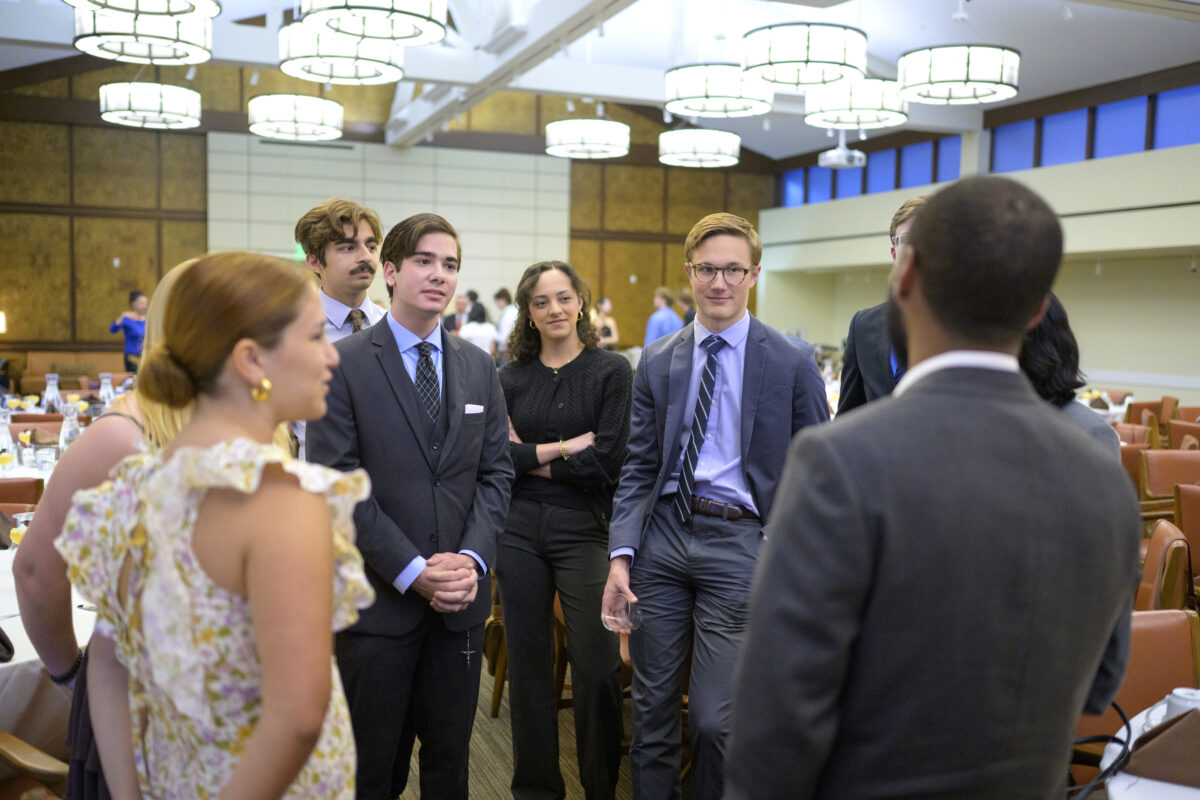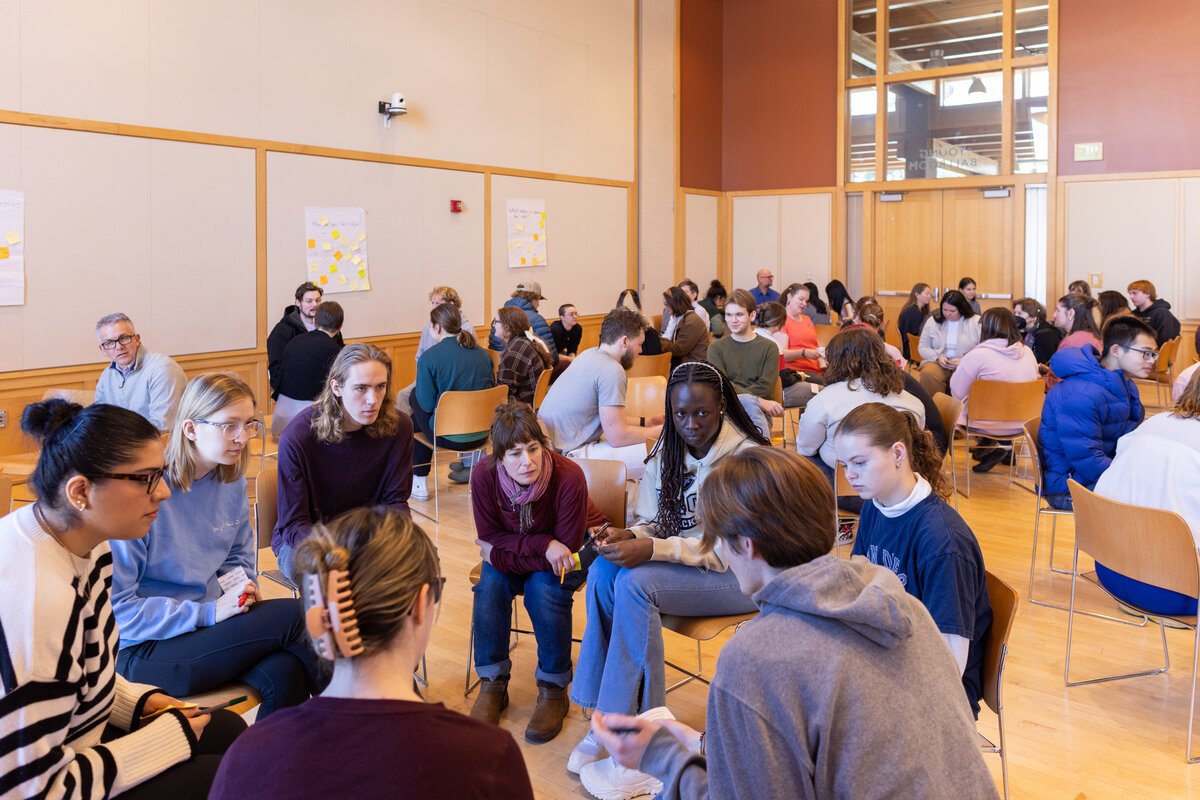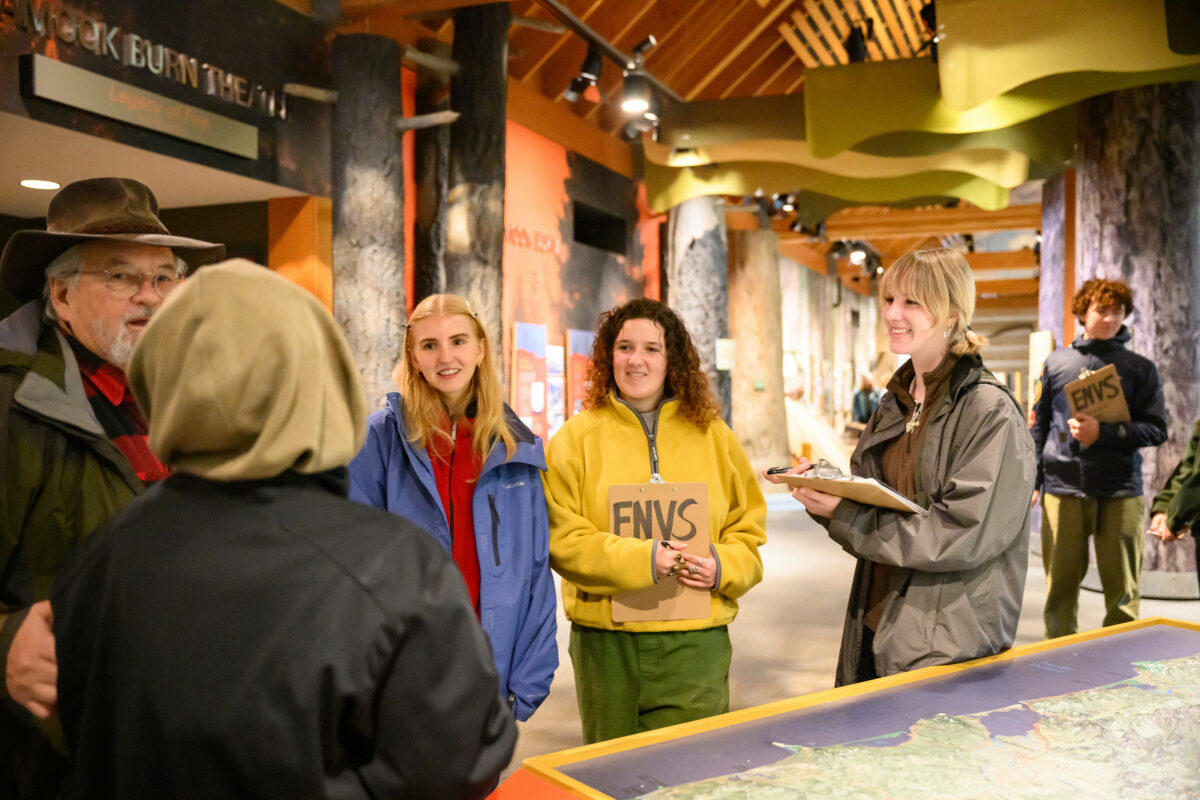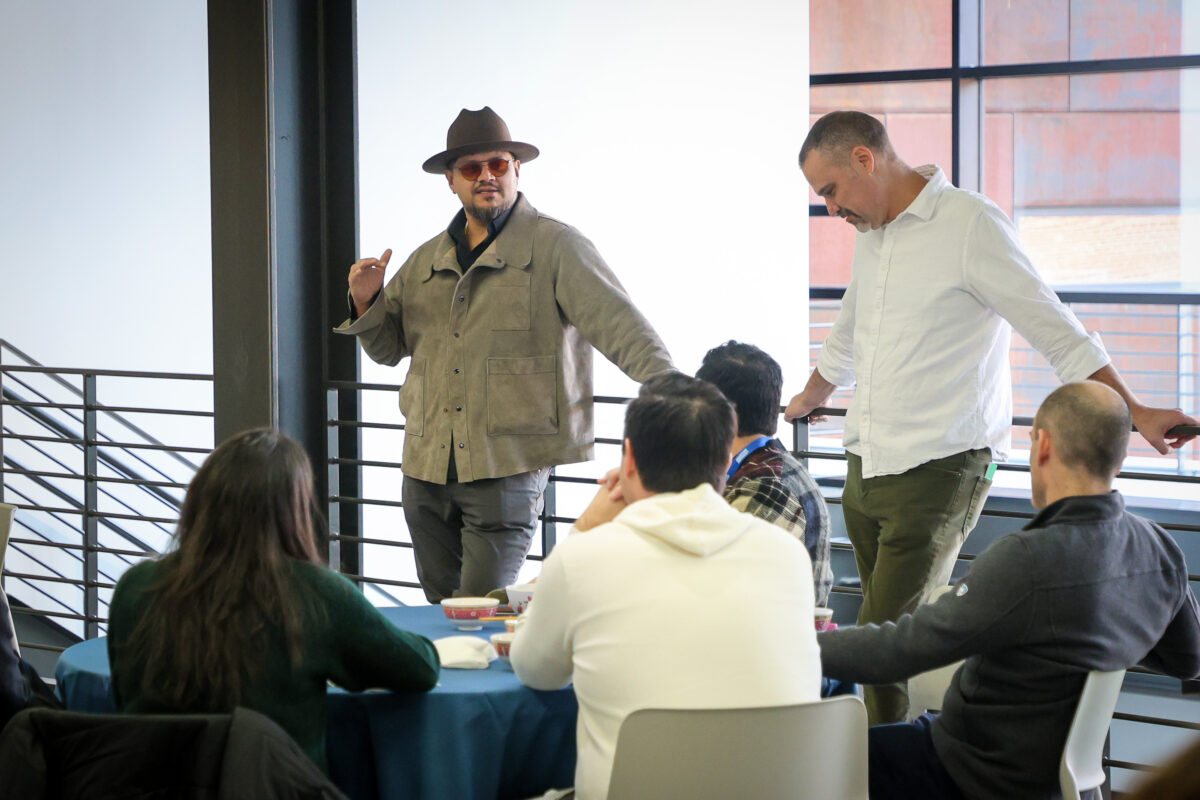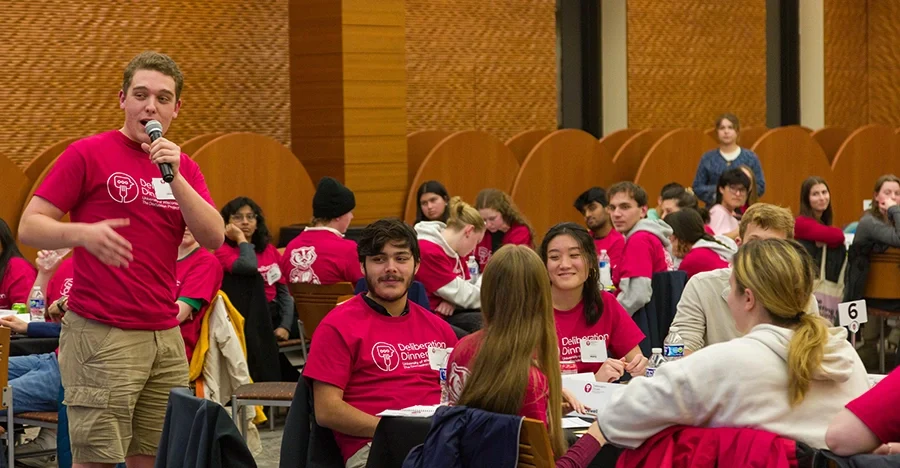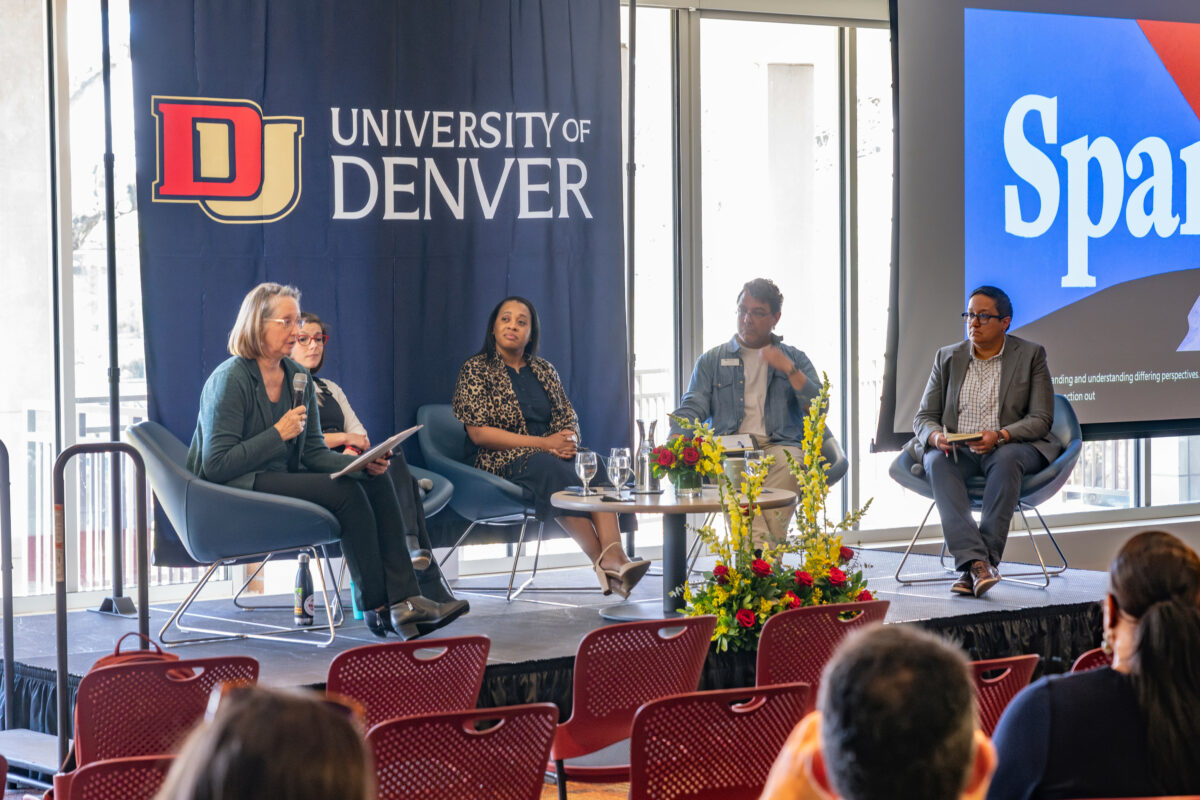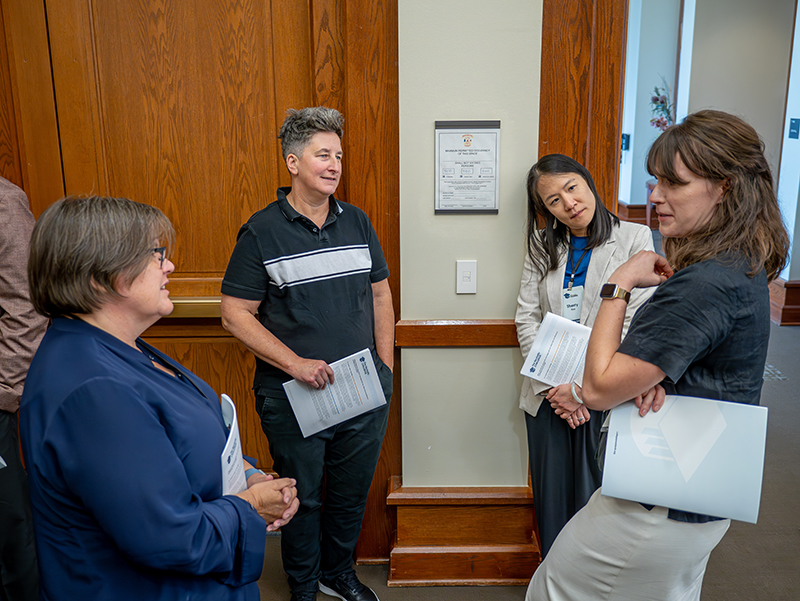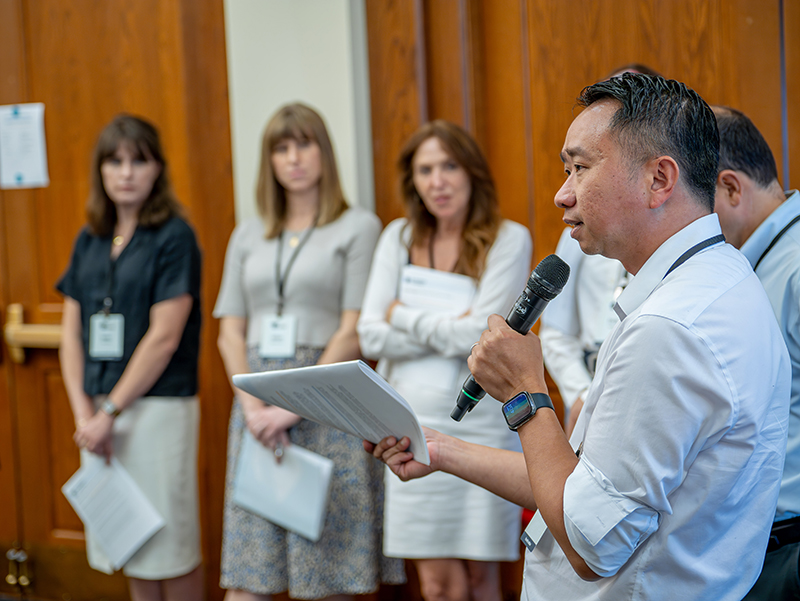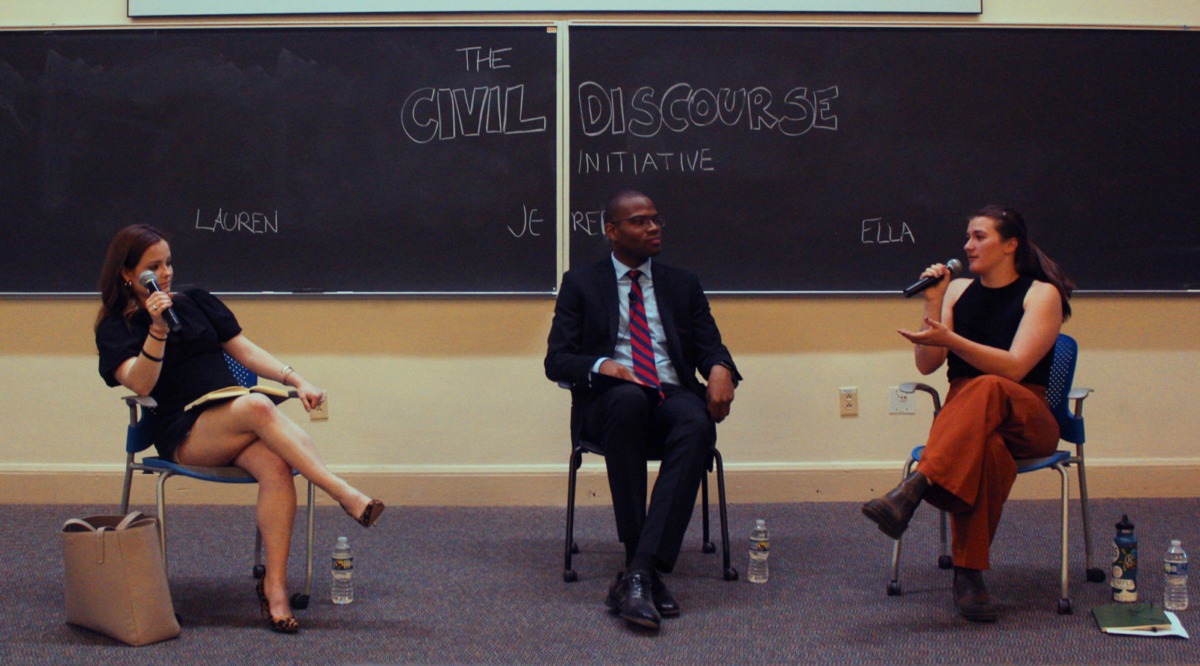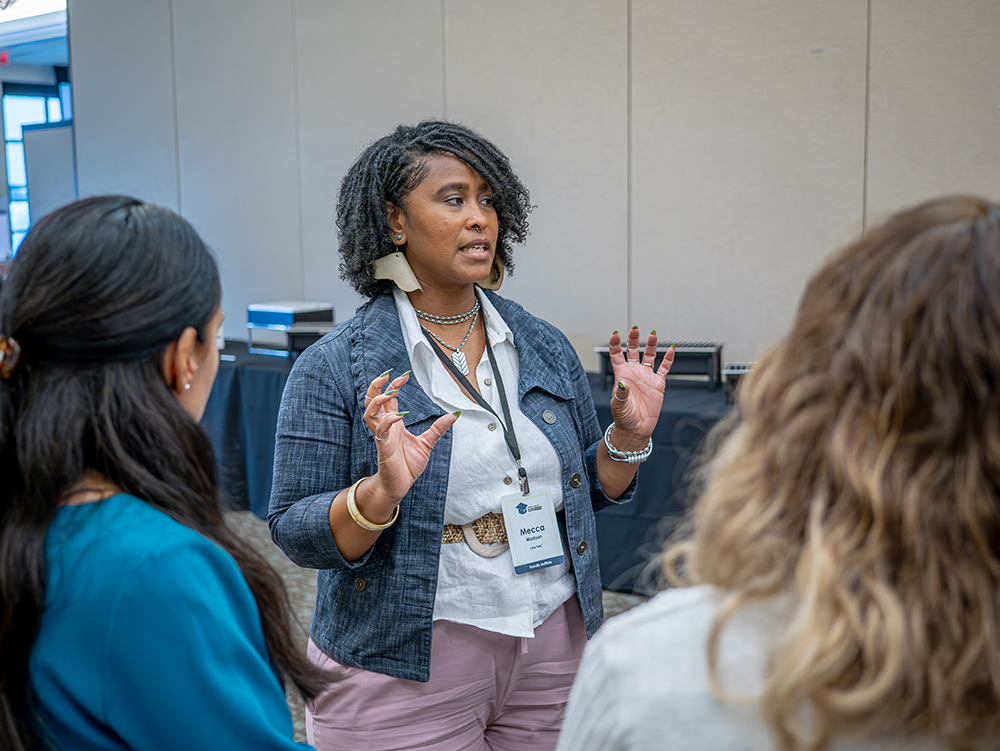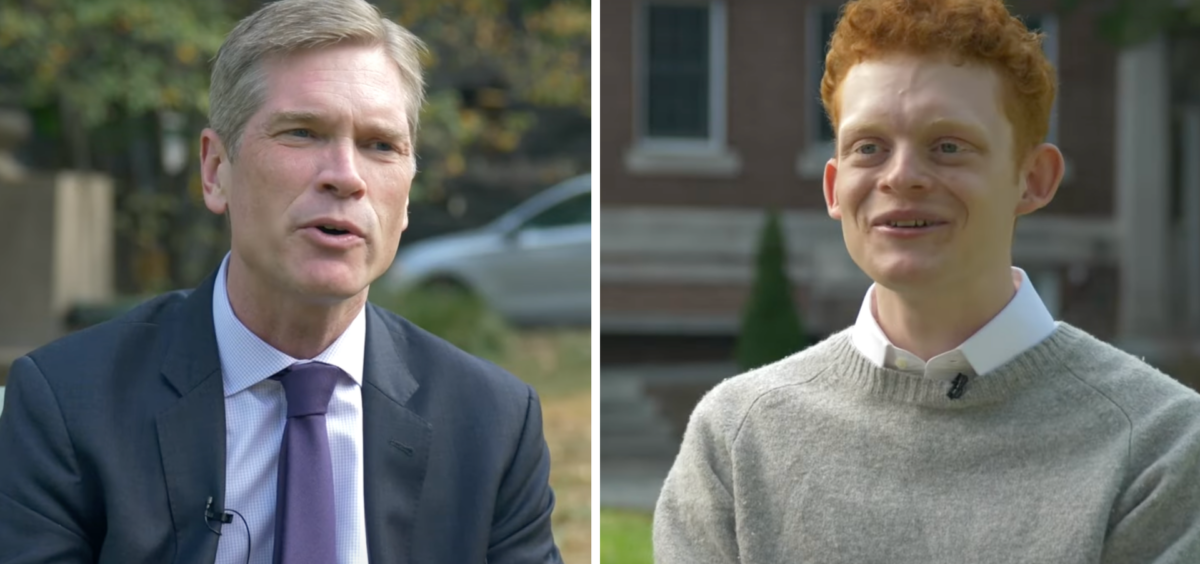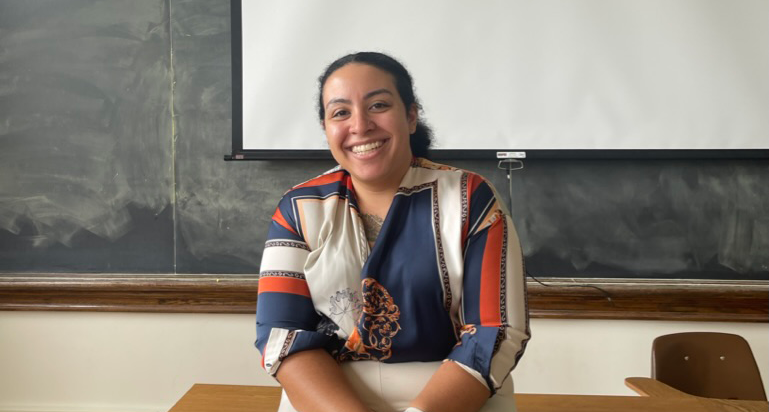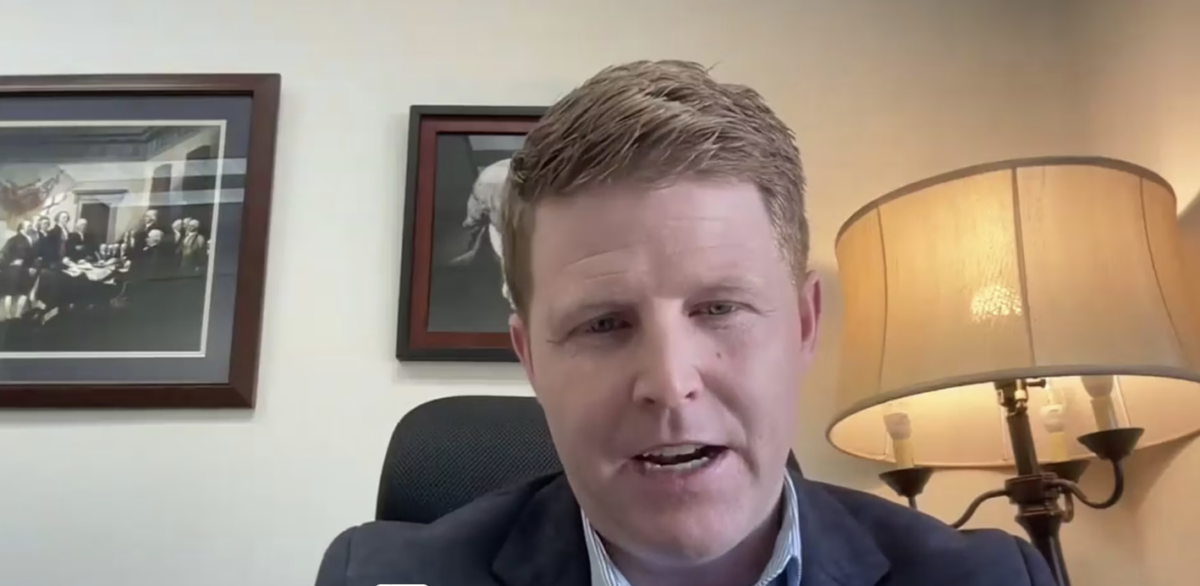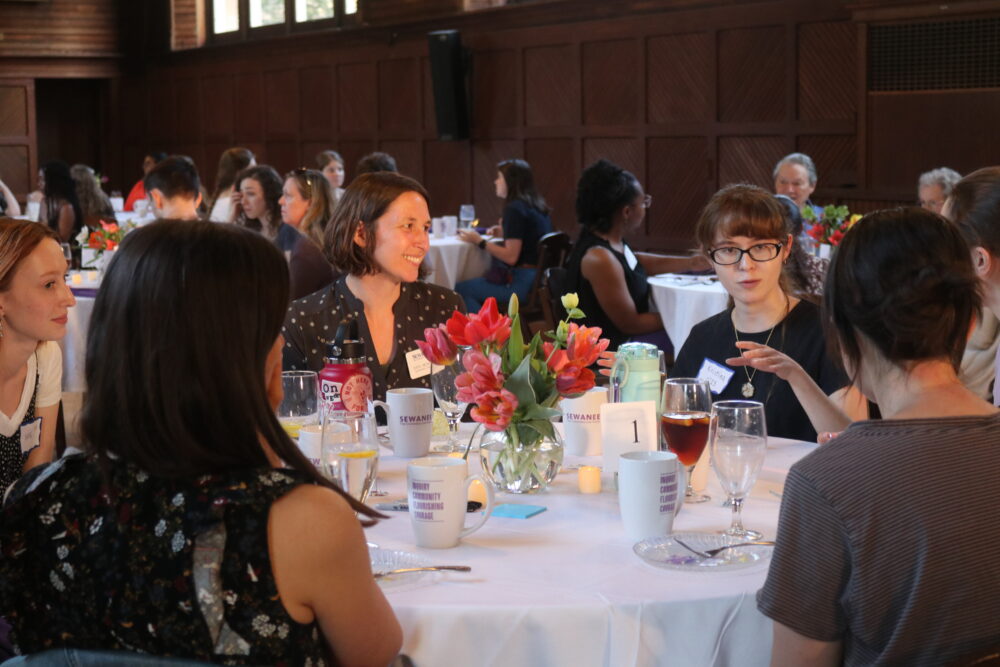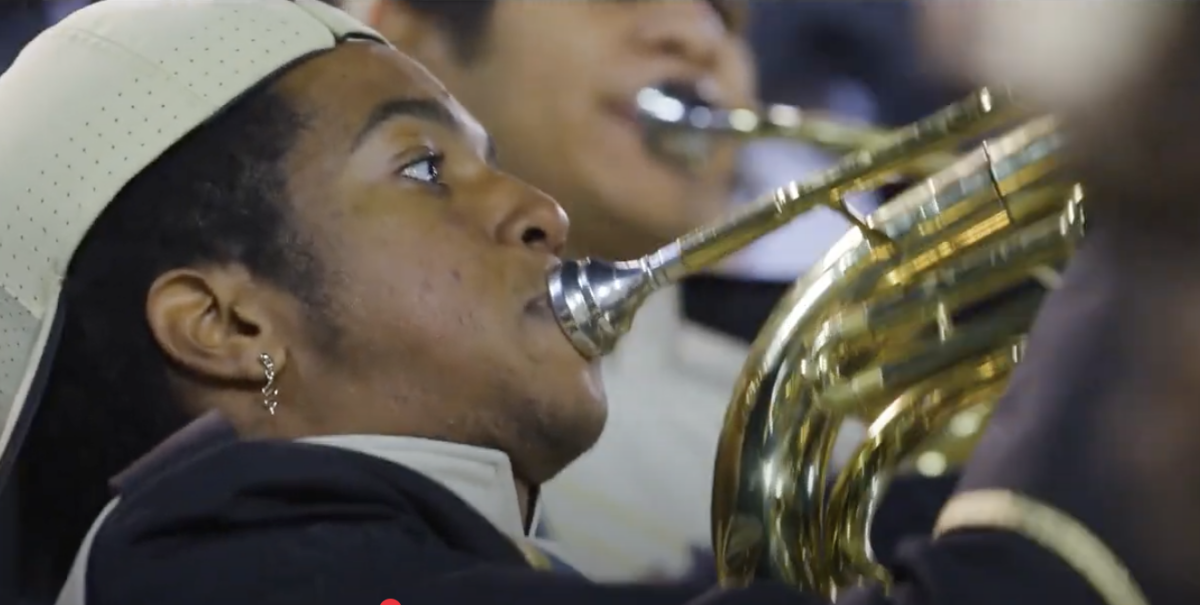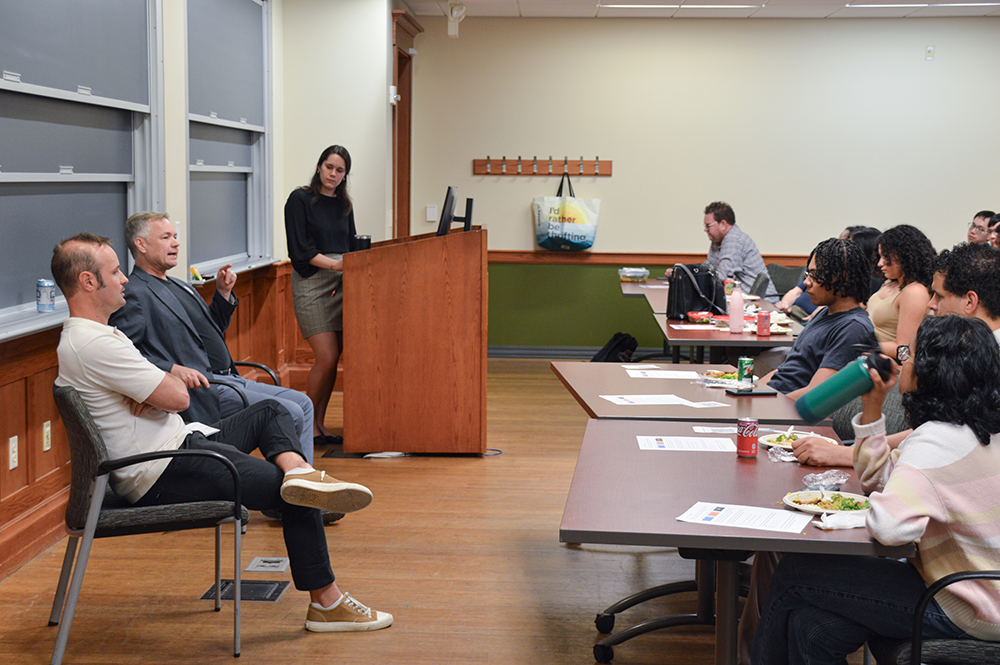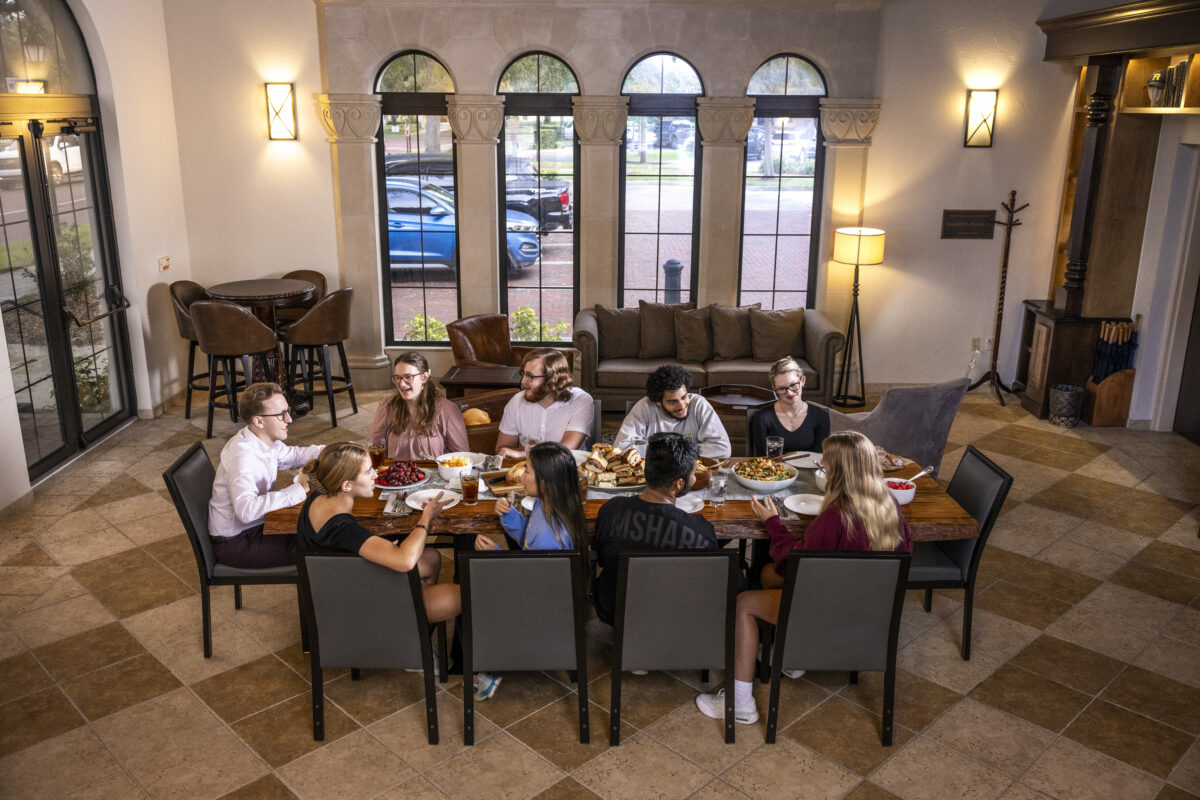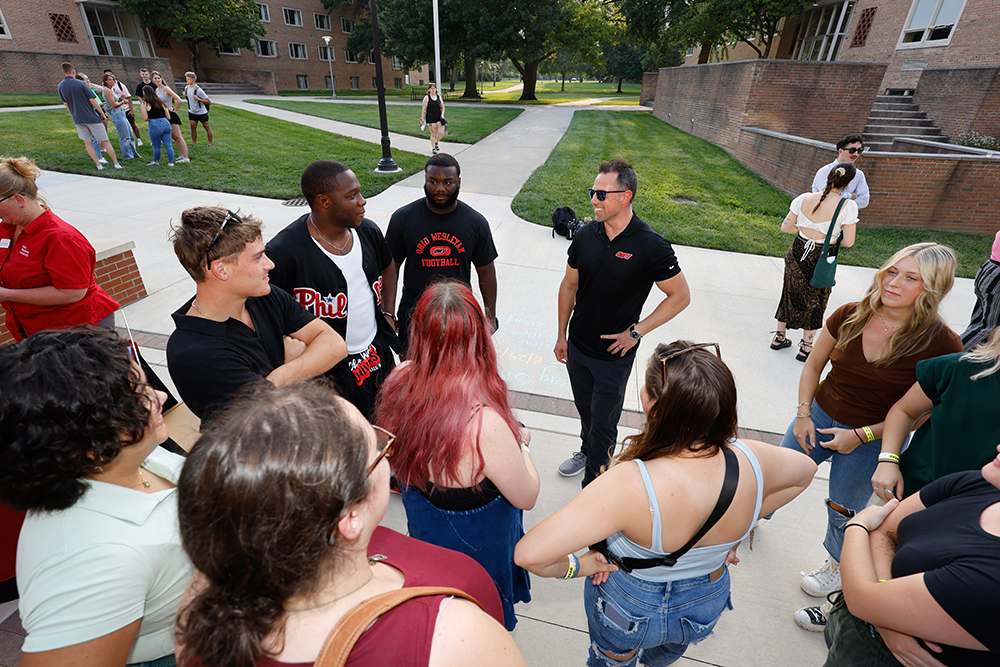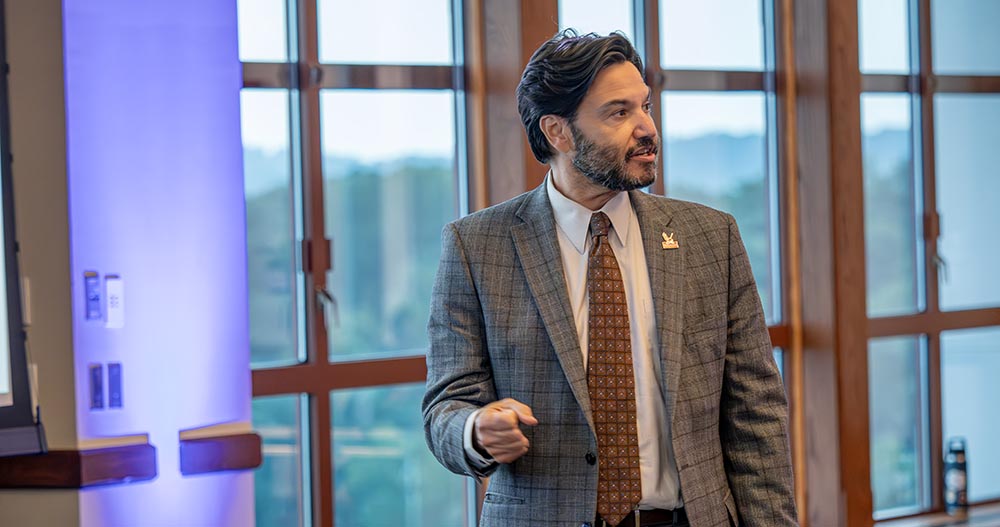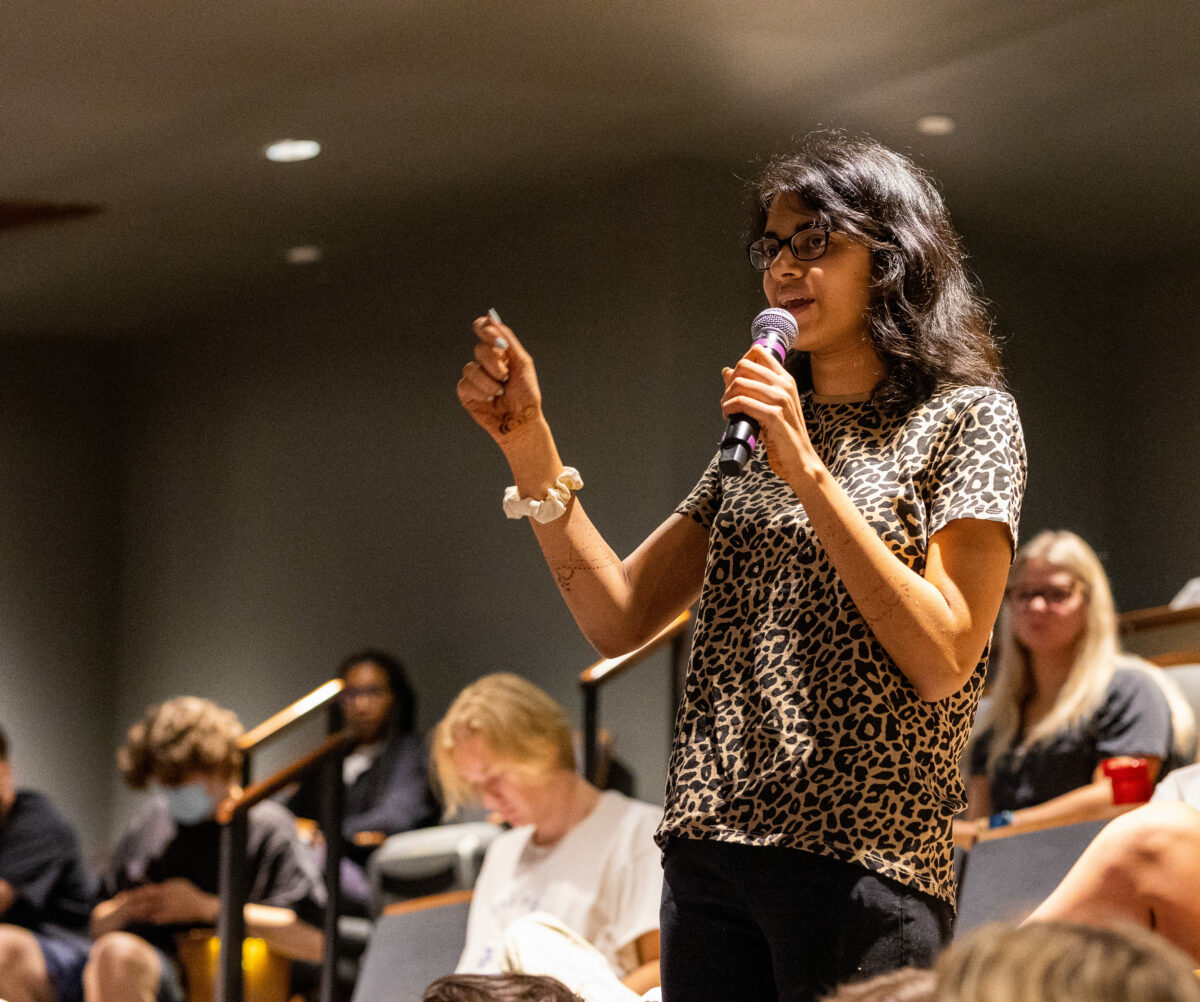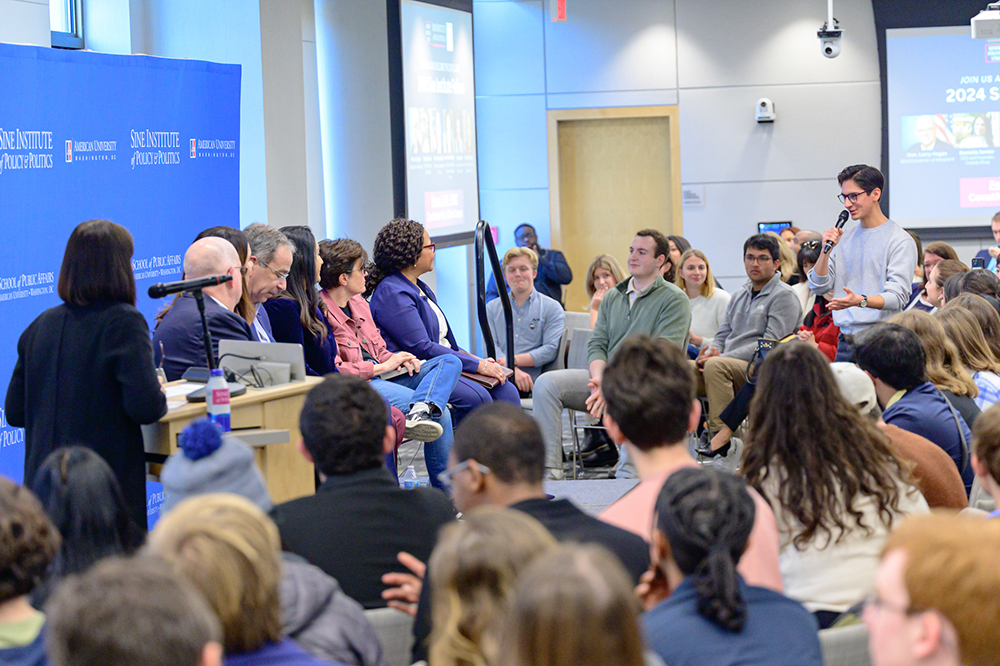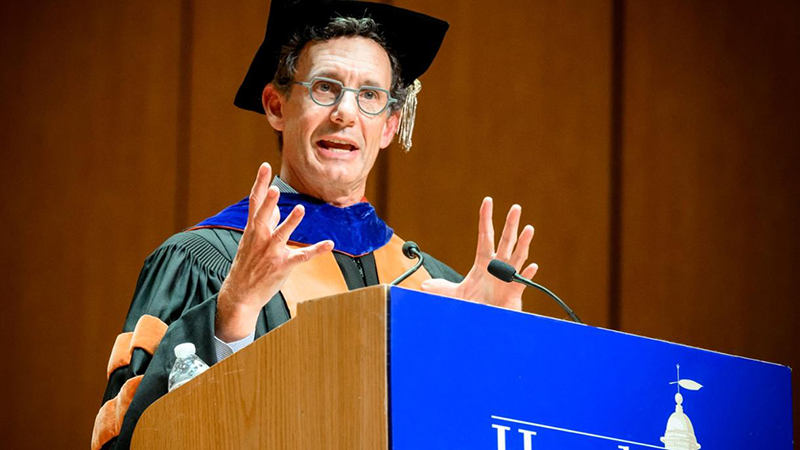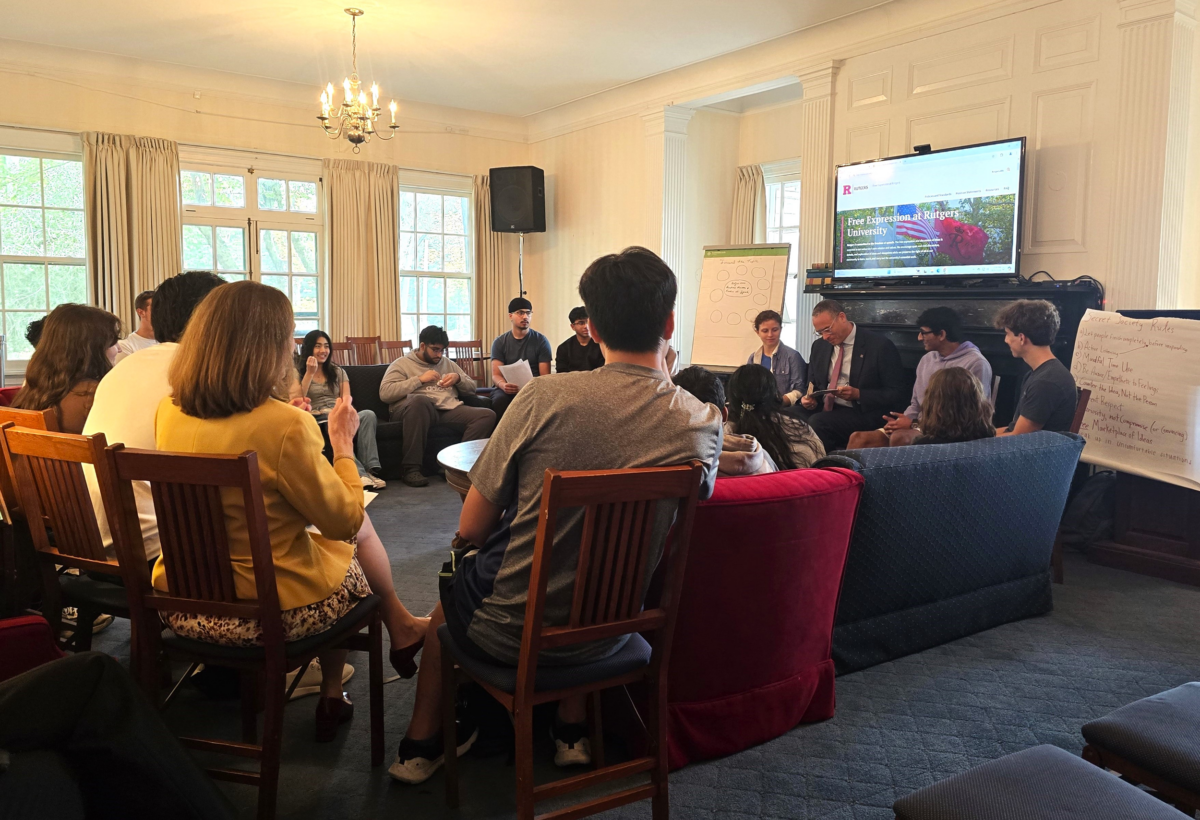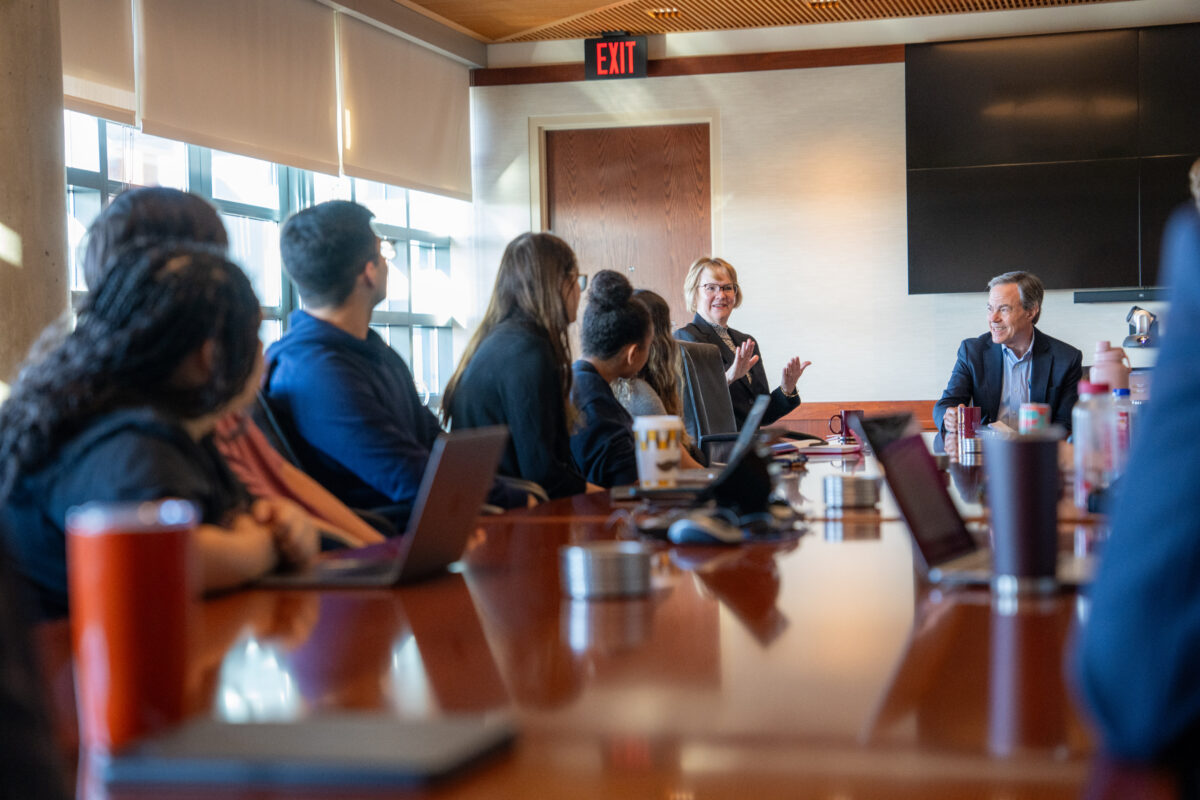At Stetson University, values aren’t just words—they’re brought to life every year during Values Day when classes are canceled to reflect on personal growth, intellectual development, and global citizenship. But 2024’s theme pushed the conversation even further: What Should Stetson’s Values Be? It sparked a campuswide discussion, encouraging the Stetson community to challenge and reimagine the university’s guiding ideals. A staff member, faculty member, and student share what makes this tradition so special.
How it all started
Kevin Winchell, Director of Community Engagement:
Two administrations ago, during Doug Lee’s presidency in the early 1990s, he recognized that there were tensions on campus around issues related to race. To alleviate tensions and address concerns, President Lee decided to cancel classes for an entire day and hold a town hall conversation. In 2004, he called it Diversity Day. I was an undergraduate student at that time, and I remember participating in that in our Lee Chapel, which is one of the convening spaces on campus.
We kept it going each year, but under the Wendy Libby administration, it was rebranded as Values Day to be representative of all the university’s values and to give more opportunities for different people to plug into our values and our mission. We typically identify a signature program, like a keynote speaker or a deliberative dialogue, and populate other parts of the day with 25-30 workshop blocks. Anyone at the University can submit a workshop proposal, including students. We have a concert at the end to lean into that joy and that community-building that we know is really important.
Why talking it out matters
David Hill, Professor of Political Science:
Stetson has a set of core values, like many universities, and there was this belief among some that it’s time to reexamine them. I worked with a group of faculty and staff and a board of trustees member throughout the fall semester to identify potential values that would be engaged on Values Day. It was the first time in the history of Values Day the event had ever been devoted to a discussion of Stetson’s core values.
We utilized Deliberative Polling, which is a unique public opinion polling methodology developed by James Fishkin at Stanford University. It’s about giving people structured opportunities to engage with different perspectives and make informed decisions. In other words, after participating, people’s opinions are less polarized along partisan and ideological lines. They’re more informed and see the other side’s viewpoint better. It turns out that if you actually give people information and a chance to talk to others, they make better decisions. That’s the whole premise.
We had about 150 people participate in the deliberative dialogue on Values Day, including students, faculty, staff, alumni, trustees, and our president. There were rules of conversation. It was highly structured, highly moderated. Everybody was equal, and therefore, we were creating an environment of civil discourse. For our students – and quite frankly for our faculty and staff and alumni – we were modeling how that can take place.
My hope is that we can make Values Day a demonstration to the university of how we can have difficult and complicated conversations as a community. That’s my project: trying to build a culture of deliberation at Stetson.
Opening up the conversation
Kevin Winchell, Director of Community Engagement:
Honestly, what I experienced from observing and participating was a lot of joy. People were really excited to have intergenerational conversations about who Stetson is and should be—conversations between students and faculty where they were on an equal playing field or students and trustees or high-ranking staff. It is different when you are in an environment that is structured intentionally to level those power asymmetries. They responded really well to that.
Everyone entered the conversation knowing that everyone else had good intent. This wasn’t anything that had been politicized nationally before in such a way that there would be retreating to partisan corners. We were talking about something that was lower stakes, at least emotionally. It allowed people to really participate and engage in a way that reflected their autonomy and their own legitimate interests. To quote Fishkin, “It’s democracy when people are thinking.” This is one of the best opportunities to get people to put notions aside and be informed by many different perspectives. And we absolutely saw that on the day.
I think it can be even more powerful when we connect that one day of conversations to many other events and programs happening throughout the entire year, with Values Day being the signature piece of it. Every year we find that issue or challenge that the university wants to lean into. The more that we’re able to connect all these dots, the harder it is for anyone at the university to avoid encountering that discussion at one point or another, whether it’s in a classroom, a residence hall, or co-curricular programming.
A student’s take on what makes Values Day unique
Bruno Soto, Stetson University senior:
My experience participating in the Values Day productive dialogue session was noticing a series of very thoughtful conversations that persisted throughout the whole event. In the four hours that we were there, we never waned on meaningful conversation, nor did we grow passive in our responses. Everyone at my table wanted to actively share what they were thinking.
While we mostly got along with what everyone at my table had to say, there was some friction when it came to discussing Stetson’s commitment to the international student community. The criticism came from a European international student, who argued that domestic students remain in the dark about the struggles of being an international student, and that a change in this would mean a lot to her. While I did disagree with her on how well Stetson cares about international students (I think we care a lot, enough to connect them to resources like financial aid and healthcare), I did recognize that my knowledge of them comes from me going out of my way to understand them, as opposed to Stetson highlighting the international student experience and helping us appreciate them more for being here. This is why I appreciate Values Day, because we find a rare opportunity to look into ourselves to ask why we believe what we do as a community and how we could better integrate our beliefs into practice through discussions with each other.
Learn more about Values Day 2024.
Photo/video credit: Stetson University

